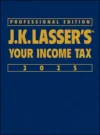Dirty Dozen 2014
The IRS’s annual list of the Dirty Dozen Tax Scams has been released. Taxpayers who use or fall victim to these scams expose themselves to additional taxes, penalties, and in some cases, criminal prosecution. There can also be nontax consequences, such as identity theft, which tops the list of scams again this year. With the identity theft scam, a taxpayer’s personal information is used to file a fake return and obtain a refund. This delays the processing of the legitimate taxpayer’s return and, where applicable, the issuance of a refund.
Other scams include:
- Pervasive telephone scams where callers purport to be from the IRS in order to obtain a taxpayer’s personal information to steal identities or money
- Phishing through unsolicited e-mail or a fake website to lure a taxpayer into sharing personal information
- “Free money” from the IRS where scammers prey on low-income individuals with promises of free money from the government through inflated refunds
- Return preparer fraud where unscrupulous tax return preparers obtain fraudulent refunds or use taxpayer information for identity theft
- Hiding income offshore to evade U.S. taxes
- Impersonation of charitable organizations, especially following major disasters, as a way to raise money as well as donors’ private information
- False or inflated income, expenses, or exemptions to maximize refunds
- Frivolous arguments to avoid paying income taxes
- Falsely claiming zero wages or using false Form 1099 to file false refunds
- Abusive tax structures to take advantage of financial secrecy laws of some foreign jurisdictions
- Misuse of trusts to erroneously make personal expenses tax deductible
Source: IR-2014-16, 2/19/14
Depreciation
Writing off the cost of depreciable property over a period of years, usually its class life or recovery period specified in the tax law.



